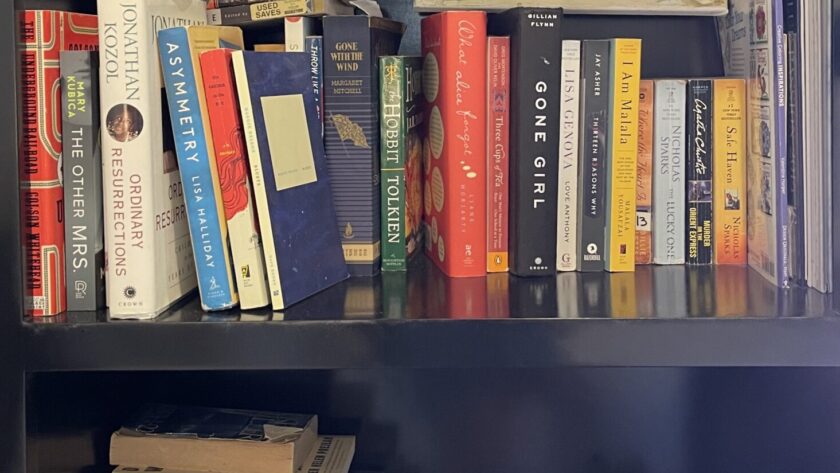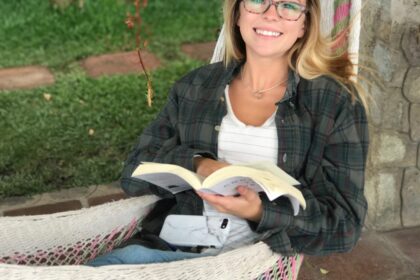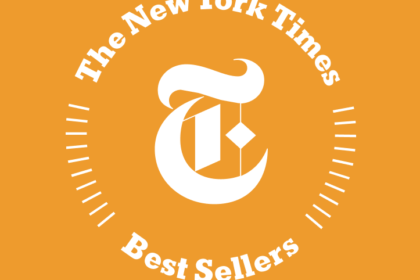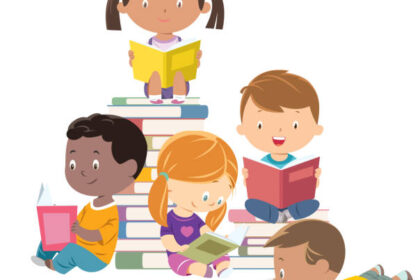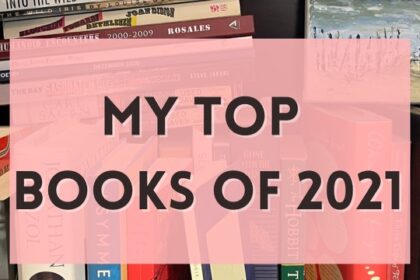For me, the American Dream looks like a library with a rolling ladder. That’s when I’ll know I’ve made it – that’s when the most central of my dreams will have come true.
When I picture my future life, a personal library in my home is a given. I want to feel like Emma Watson in Beauty in the Beast everytime I enter my own little heaven, one that belongs entirely to me.
(I’m pretty set on designing and curating said library myself, but if a beast wanted to gift me a two story Victorian library within a castle I can’t say I’d reject it.)
It’s Thanksgiving Break now, and I am back in my hometown from college. I woke up in my childhood bedroom this morning, which never fails to feel so acutely disorienting, as if I am having a slumber party with the little girl I used to be.
This morning, I was puzzling over the topic of a new blog post, and I came up blank. I haven’t read anything particularly review worthy in a little while, my inspiration seemed slim, and I was frustrated. I dreaded the prospect of writing, I dreaded this very moment that I am living in right now!
I started looking around my childhood bedroom, though, and my bookshelves were demanding my attention, as they always do.
I realized then that the bookshelves have a story worth telling.
I am a firm believer that you can tell everything you need to know about a person by their bookshelves. You can see what books are deemed worthy to keep, which ones have broken spines and ruffled pages, evidence of multiple reads. You can tell what genres they gravitate towards, and whether they read diverse authors. You can tell if the books have never been opened (which is certainly a red flag).
A bookshelf, when considered as a whole, tells a story about its owner.
So today, I want to take you on a tour of my childhood bookshelves, and I want to see what stories they offer. I want to see what versions of myself they bring to mind.
My room has four walls – three white, one blue – and one west-facing window. I have books lining the entire remainder of the wall where the window sits.
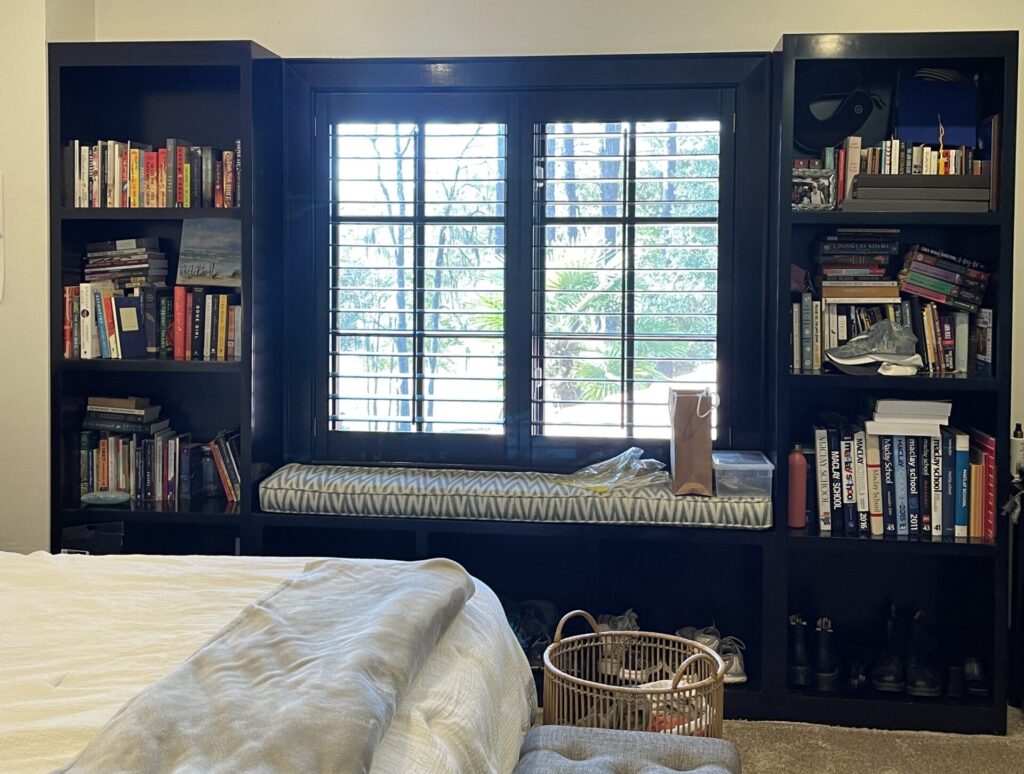
Growing up, my friends always made fun of me for this – for my little library. But when spring break or summer rolled around the corner, they’d happily come check out books from the library of Isabel Hutchinson. My college friends now do the same, and it brings me so much joy each and every time.
The defining characteristic of my childhood bedroom is an absurdly large and completely impractical collection of books. Half of the books I have already read and will likely never touch again (like the Soul Surfer book or the one about female bodies that my mother gave me when she gave me “the talk”). The other half I have bought and have yet to read and hopefully will touch someday, but I’m in Athens and they are here so that’s not looking likely.
But I’m convinced that buying books and reading books are two entirely separate hobbies, and that’s a hill I’m willing to die on.
After all, in order to fulfill my dream of having a library with a rolling ladder one day, I have to acquire enough books to fill the library! Clearly, this is a task I’ve taken very seriously.
In a lot of ways, these books are my room – these books are all that has made me.
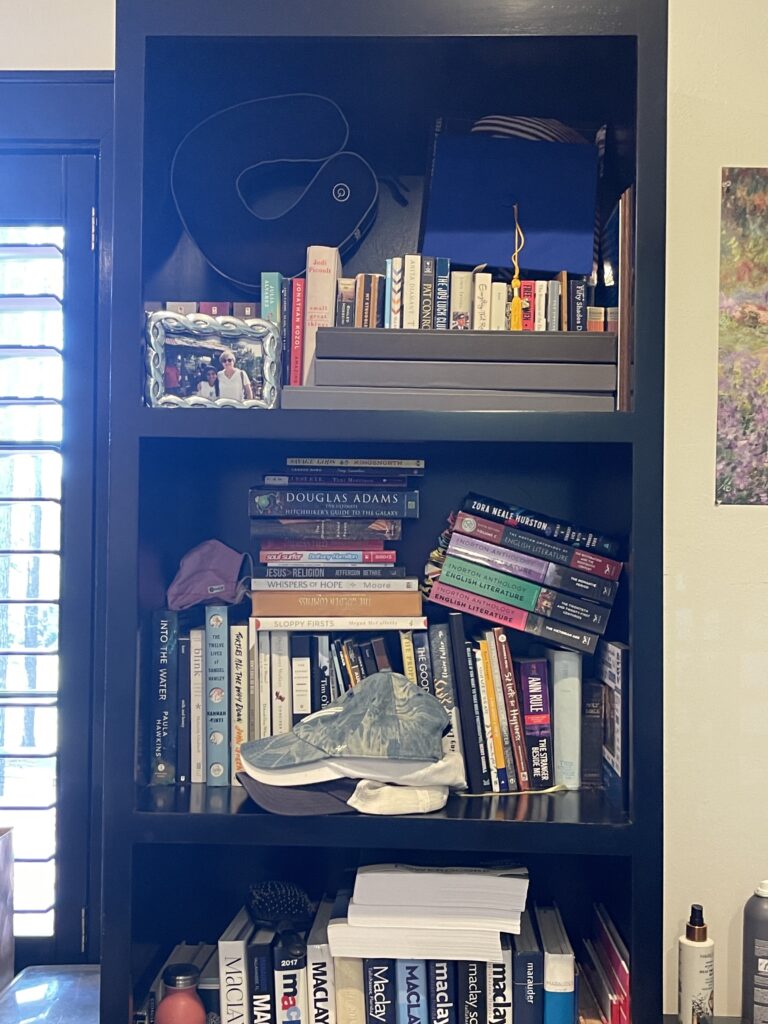
Side 1 Highlights: 3 Harry Potter Wands, High School Diploma, so many anthologies, Toni Morrison, Shakespeare, Faulkner, and Yearbooks.
It’s funny how, when looking at these bookshelves with analytical eyes, I can see myself growing. I can see different versions of myself, images of a different girl bound in each paperback.
The Harry Potter wands (Dumbledore’s, Hermione’s, and Ginny’s, to be exact) remind me of when I fell in love with reading.
My mom recently confessed that when I was really young, she was worried that I would never be a reader, which is a cardinal sin in the Hutchinson family.
But the second I got my hands on a Harry Potter book, my world changed forever (and that statement is not hyperbolic). At the top of the bookshelf, the very beginning of my love affair with reading is showcased. The wands remind me of a little girl, age 8, waking up at 4:30 in the morning before school to finish Order of the Phoenix, certain that no story could ever be as enticing.
If I could meet her, I would tell her that she should read faster, because she eventually loses the race to finish the Harry Potter series, and that she’s still not over it. I’d tell her that she finds stories she loves just as much for the next thirteen years, but that Harry Potter will always be the first.
The rest of the books on this side remind me of the academic part of high school, when reading for school became worthwhile. Almost all of the books on this side of my bookshelves are ones I was assigned, but I still hold onto them, and probably always will. They made me love learning from books.
I still remember almost crying in the Maclay library reading the first chapter of Faulkner’s Absalom, Absalom!, so frustrated that comprehension was beyond my grasp at sixteen. It was the hardest book I had ever read, is probably still the hardest book I have ever read.
I’d tell my sixteen year old self that someday in the near future, she will seek out books that are hard, that she gets frustrated when authors make understanding too easy. I’d tell her that she dreams of writing “hard books” someday.
Shakespeare and Toni Morrison are sandwiched next to each other. Fifty Shades of Gray placed next to an old devotion book. Anthologies of old English literature placed atop a bible, a biography of Ted Bundy, and a self help book. A whole shelf of yearbooks, one of which I helped make my senior year, and one of which has lipstick smooches on the cutest third grade boys.
This side is admittedly chaotic. But high school at Maclay was chaotic, full of contradictions and dichotomies. This side, more than anything, shows the way that books completely blew up my neat, controllable, serendipitous world view. These books took me out of the conservative, white, private school south. And thank God for that.
Books from this time in my life showed me past and present injustices, showed me that reading is not always easy, and showed me that reading was a whole lot more than Harry Potter.
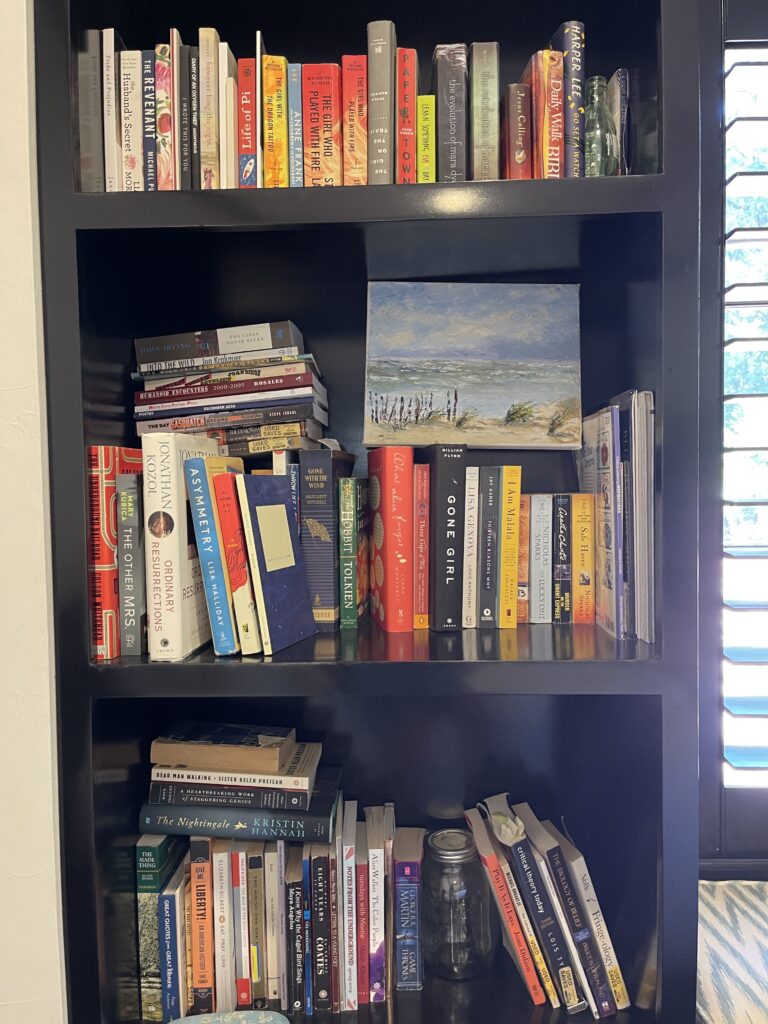
Side 2 Highlights: Joan Didion, Colson Whitehead, John Green, a painting from Paris, Tolkien, Game of Thrones, Into the Wild
When looking at this side of the bookshelf, I am reminded of the high schooler that read for fun, in her free time, whenever she could steal a moment away with a book.
Into the Wild is by far the most worn in book in my collection. It has a thoroughly broken spine, several coffee stains, wrinkled pages, and highlighter everywhere. Into the Wild was my favorite book for years, and I read it four times, which I laugh at now. I mean it’s basically just an angsty privileged white dude running away to the woods.
But actually, picking this as my favorite book made a lot of sense for the 14 year old, small town girl longing to escape. I wanted to run away, and this story let me do it.
If I could talk to that girl, I’d tell her we do escape eventually, and she’d smile. I’d also let her know we no longer hate Tallahassee, that she won’t always feel this way. She’d probably laugh at that.
The John Green collection reminds me of the hopeless romantic I used to be at fifteen. To that girl, the greatest stories in the world were love stories, ones where beautifully complicated people find a beautifully complicated love. John Green gave me those stories.
That fifteen year old girl, if I could meet her now, would smile when I told her I found one of those great loves I used to read about. I wish I could tell her how much there was left to hope for.
Colson Whitehead’s Underground Railroad stuck with me for years. My first essay for AP Lang my junior year was on this book, and I was terrified of the teacher and the class and the grades. I wasn’t a great English student before AP Lang, and I still thought that I wanted to be a surgeon.
But when I received glowing praise for that first essay, I realized that maybe I had been reading the wrong books, and writing the wrong things about them. Maybe if I wrote with my heart, I could write things worth reading. Writing about Underground Railroad taught me to marry my personal experiences with my academic writing, and it gave me a small glimmer of hope that maybe I could be a successful writer.
If I could talk to that girl, I’d tell her that she’s an English major, that she operates a blog, that she writes daily, and that she followed her passion. I’d tell her that she’s a good writer, not because anyone else says so, but because she actually believes it.
Joan Didion will always remind me of being eighteen.
When I was eighteen, in my senior year of high school, I had never been so desperate for an ending. Most people talk about wishing time would slow down their senior year, but I needed it to speed up. If I hadn’t made this clear before, I did not like high school. I navigated mental health challenges, failed friendships, an absurdly busy schedule, and despite all of it, I was so incredibly bored that year. Senior year, I felt that Tallahassee had nothing left to offer me but pain. I went through the motions and buckled down, knowing that every day I woke up was a day closer to the ending I desired.
While in that uniquely dark mental space, I picked up a Joan Didion book for the first time, Slouching Towards Bethlehem. I remember that night clearly, crying four pages into the introduction. Joan Didion had entered my brain and stolen my thoughts and published them before I could! How dare she!
I read all of her work I could get my hands on for the next year. At a time when loneliness was my dominant mental state, Joan Didion held my hand, whispering in my ear that I was not alone in feeling so out of touch with myself, with my life, with my dreams.
I would love to meet all of the previous versions of myself. I like to think of them as an audience to my life, rooting for me from the sidelines.
But if I had to pick just one, it would be that eighteen year old girl, so hell bent on getting out that she forgot to find joy. I’d tell her that it takes us awhile, but we eventually learn how to be happy. I’d tell her that we wake up every day smiling at the world. I’d tell her that she is in love. I’d tell her that she is successful, that her dreams are coming true. I’d tell her that it gets so much better, and I’d tell her to hug her parents more.
My childhood bookshelves show me so much of myself, show me so many versions of myself. And I think it’s pretty magical that books have the unique power to take us right back there, right back to eight years old curled up with a harry potter book.
My bookshelves tell the story of my life.
I guess that means I have a free pass to acquire more books, right?
